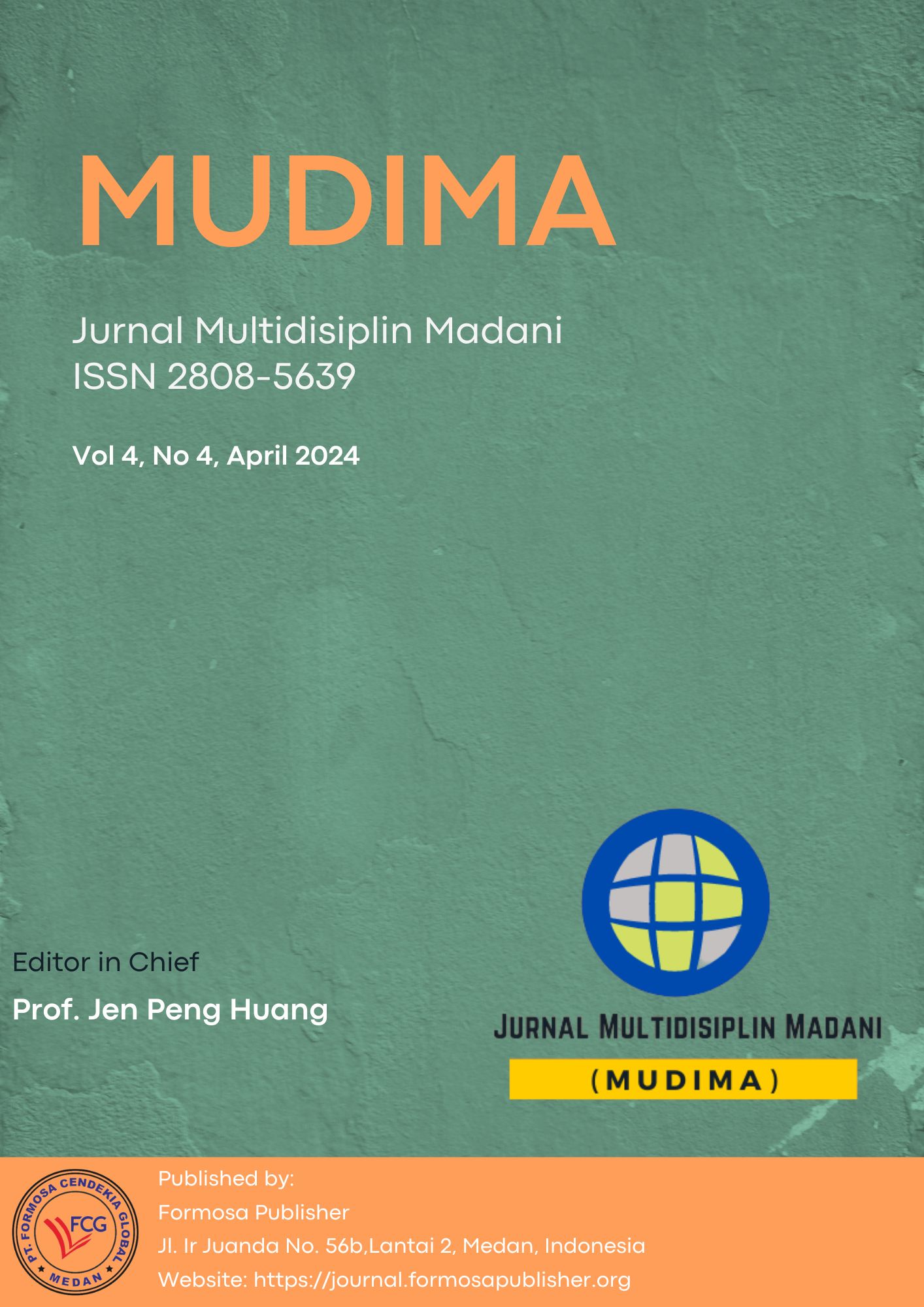Endogenous Growth Theory: The Influence of Health Budget Allocation and Financial Sector Growth on the Indonesian Economy
DOI:
https://doi.org/10.55927/mudima.v4i4.9010Keywords:
Endogenous Growth Theory, Health Budget Allocation, Financial SectorAbstract
This study delves into the application of Endogenous Growth Theory to the Indonesian context, focusing on the interplay between health budget allocation and the growth of the financial sector in shaping the country's economy. Endogenous Growth Theory posits that economic growth can be internally driven by factors such as human capital accumulation, technological progress, and institutional development. Through empirical analysis, this research examines how the allocation of resources to the health sector and the expansion of the financial industry impact Indonesia's economic performance. By employing quantitative methods and econometric models, the study elucidates the extent to which these factors contribute to economic growth and development. The findings shed light on the importance of targeted budgetary allocations and financial sector policies in fostering sustained and inclusive economic progress in Indonesia
References
Ari Mulianta Ginting* Galuh Prila Dewi**(2013), Pengaruh Pertumbuhan Ekonomi Dan Pertumbuhan Sektor Keuangan Terhadap Pengurangan Kemiskinan Di Indonesia; Jurnal Ekonomi & Kebijakan Publik, Vol. 4 No. 2, Desember 2013
Azka Dhiya, Kathya, Mingshen (2021), Endogenous Growth Theory: The Impact of Government Expenditures in Education and Health on The Economy: Jurnal Anggaran dan Keuangan Negara Indonesia Vol. 3 No.1 (2021)
bi.go.id/id/publikasi/laporan/Documents/3_LPI2021_BAB1.pdf bps.go.id/indicator/13/123/1/uang-beredar.html
BPJS. (2022, Oct). Pemanfaatan Data JKN Untuk Perbaikan Sistem Kesehatan di Indonesia. From BPJS Kesehatan:
https://bpjskesehatan.go.id/bpjs/dmdocuments/0775bd2f22814ddb26c71e02903c92 26.pdf
data-apbn.kemenkeu.go.id databoks.katadata.co.id data.worldbank.org/country/indonesia pen.kemenkeu.go.id diakses oktober 2022
Hendarmin, H., & Kartika, M. (2019). The relationship between human capital and the regional economy productivity. Jejak: Journal of Economics and Policy, 12(1), 138–152. https://doi.org/10.15294/jejak.v12i1.18396
Innes Clara Shinta, Akhmad Solikin (2022), The Influence Of Capital Efficiency And Education Spending On Indonesia’s Economic Growth, International Journal of Economics, Business and Accounting Research (IJEBAR), 817-830.
Law of Republic of Indonesia Government Regulation No. 129/2000 concerning regional formation requirements, expansion, elimination and merge.
Law of Republic of Indonesia Government Regulation No.78 of 2007 concerning procedures for formation, abolition and merger of regions, Jakarta.
Law of Republic of Indonesia Act No. 22 of 1999 concerning administration. Law of Republic of Indonesia No. 25 of 1999 concerning financial balance between central and regional governments, Jakarta.
Law of Republic of Indonesia Law No. 32 of 2004 on regional governance.
Law of Republic Indonesia No. 33 of 2004 about financial consideration between the center government and regional government
Mankiw, N.G., Romer, D., & Weil, D.N. (1992). A contribution to the empirics of economic growth. Quarterly Journal of Economics, 107(2), 407-37.
Todaro, M.P., & Smith, S.C. (2003). Economic Development (Eighth Edition). Pearson
Downloads
Published
How to Cite
Issue
Section
License
Copyright (c) 2024 Dyah Ciptaning Lokiteswara Setya Wardhani

This work is licensed under a Creative Commons Attribution 4.0 International License.































